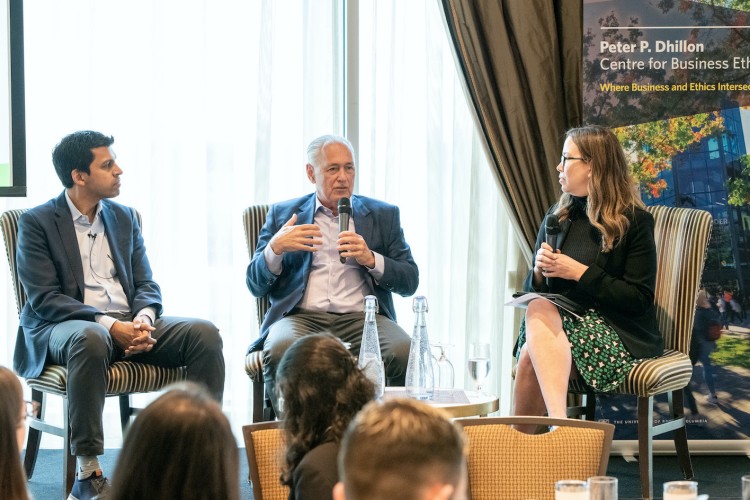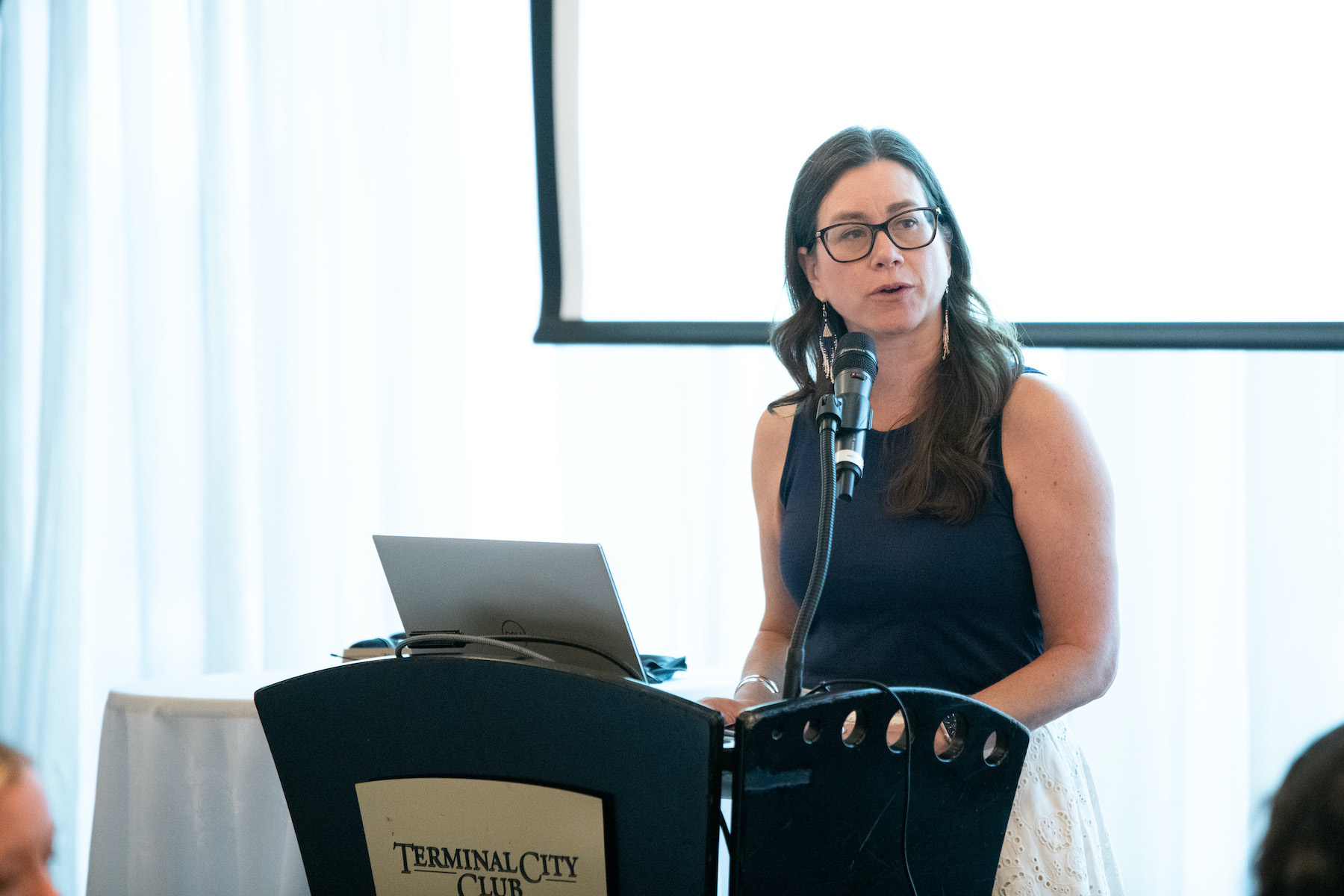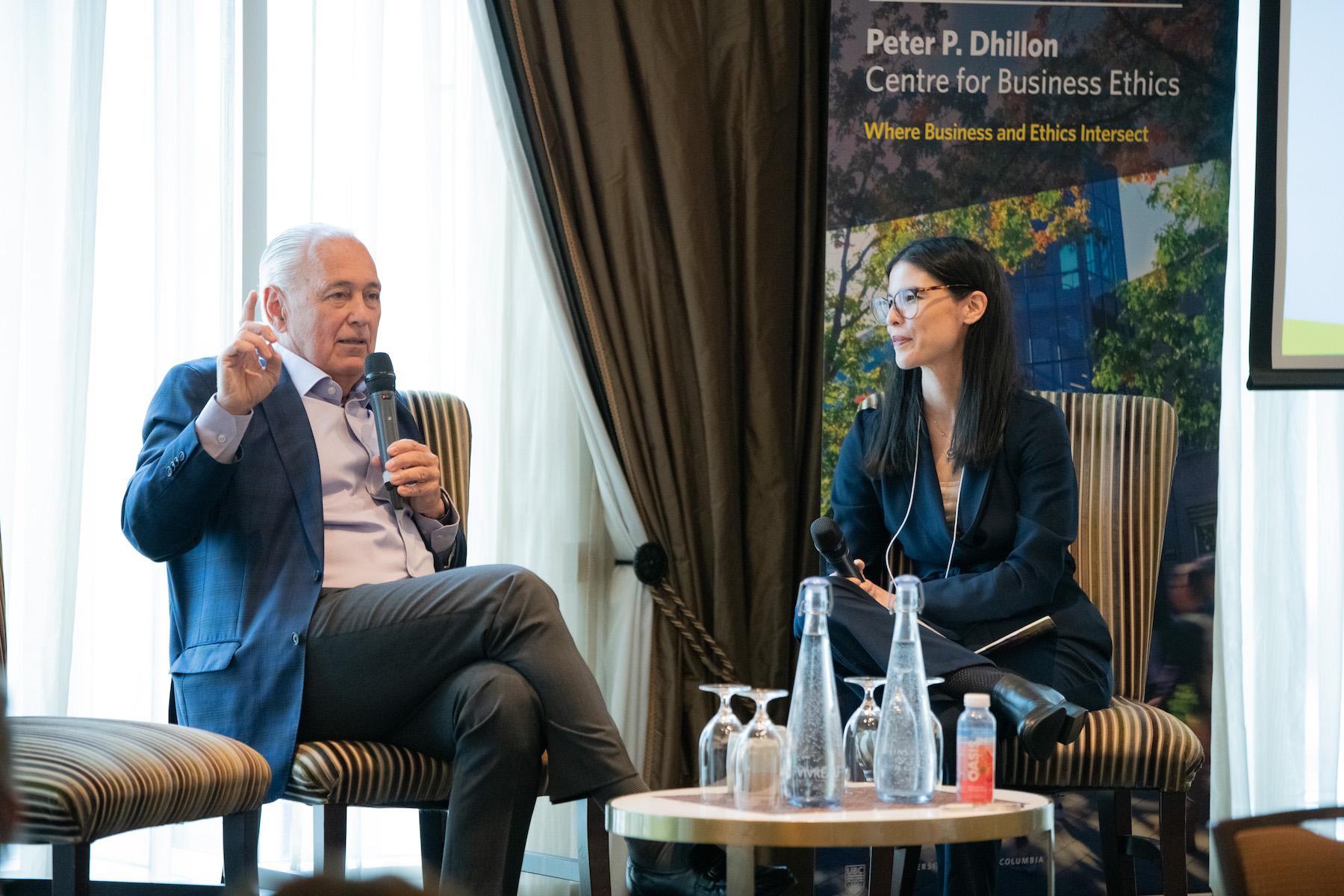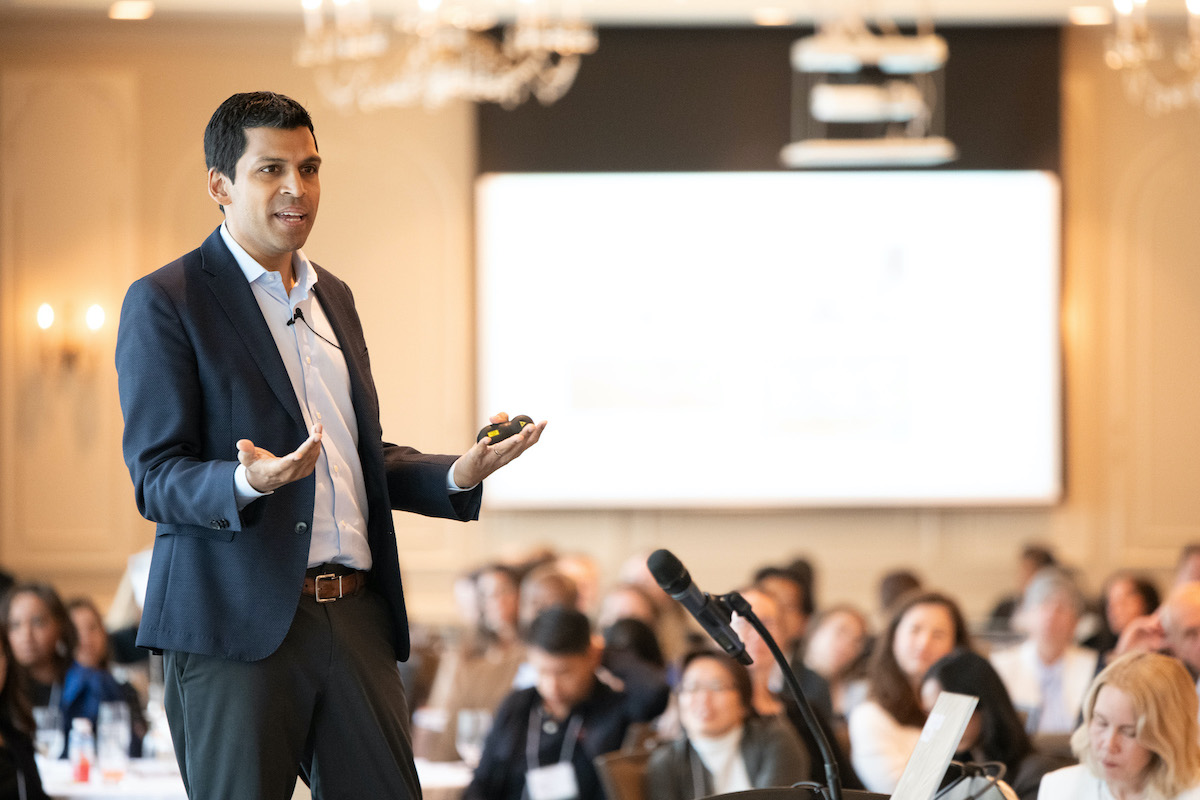
Integrating purpose and profit: Dhillon Centre for Business Ethics at UBC Sauder hosts Summit on Business for Social Good

Guest speakers Dr. Ronnie Chatterji and Glen Clark debate the role of business with Dr. Kate White, Senior Associate Dean and Watkinson Professorship in Sustainability at UBC Sauder.
Related Links
Business professionals, academics and students explored the topic of balancing business profits with social purpose at the Summit on Business for Social Good in downtown Vancouver on June 14. The event, part of the two-day Behavioural Insights into Business for Social Good Conference 2024, was hosted by the Peter P. Dhillon Centre for Business Ethics at the UBC Sauder School of Business, and was made possible through generous sponsorships from some of Vancouver's leading businesses. The event attracted a sold-out crowd and sparked lively discussions about the latest academic research and business trends.
Creating social good through Indigenous economic partnership

The first guest speaker was Tabatha Bull, President and CEO of the Canadian Council for Aboriginal Business.
“The Indian Act caused Indigenous communities across the country to be excluded from the Canadian economy and that has impacted generations,” says Bull, who is Anishinaabe. “Rebuilding wealth will take time, but we can do it through respectful economic partnerships.”
Bull highlighted the opportunity for Canadian companies to partner with Indigenous businesses through procurement of their products and services. She also encouraged companies to pursue the Progressive Aboriginal Relations (PAR) certification program, a Canadian program that validates corporate performance with respect to Aboriginal relations.
“About 230 Canadian corporations have earned PAR certification and another 200 are going through the process. Canadian banks, natural resource and construction companies certified initially, but now we have companies like Starbucks and Uber going through the program. It’s great to see these global brands committed to doing better.”
Starting with a strong social purpose

Jiamei Bai, a partner at McKinsey and Senior Vice President of Member Engagement at lululemon, provided the audience with examples of how successful businesses build their growth strategy around their social purpose.
“Companies exist to create value, not just profit,” says Bai. “A purpose-driven business is just good business. It pays, it motivates employees, engages stakeholders and attracts investors.”
Bai presented the audience with a four-step guide to help companies achieve a purpose-driven growth strategy.
- Map your world: Research your organization’s operating environment.
- Define your contribution: Identify what your organization contributes to society and define that unique contribution in a purpose statement.
- Embed in the business: Embed your purpose statement in your organization’s operating model and culture.
- Engage: Motivate employees to bring your purpose statement to life in their day-to-day work.
“Sometimes the most powerful purpose statements are the simplest, but the key is to have a clear narrative and take a bold stand,” says Bai. “Then your leaders need to stand behind the purpose and engage your employees.”
Presenting a different view

Business leader and former B.C. Premier Glen Clark offered the audience a different view -
that governments, not businesses, should focus on social good.
“Businesses don’t do social good,” Clark insists. “In business, you have to make money, so anything that helps you make money is what you are going to pursue. If you don’t run your business that way, you’re going to be out of business. Of course, businesses make people’s lives better every day, but it’s a byproduct of the market system.”
Clark asserted that social good is the responsibility of governments since their role is to pursue the public interest.
“Take climate change for example. Quebec purchases the highest number of electric cars in Canada because the Quebec government makes it a requirement for car dealers to sell a certain percentage of electric cars. British Columbia has the second-highest number of electric car purchases because the B.C. government offers a massive subsidy. So, governments have the power and leverage to solve society’s challenges if they choose.”
Shifting priorities in ESG

Dr. Ronnie Chatterji provided a U.S. perspective on the changing landscape of ESG. The Mark Burgess & Lisa Benson-Burgess Distinguished Professor of Business and Public Policy at Duke University and author of "Can Business Save the Earth?" said companies are focusing more on the E and less on the S of their environmental, social and governance strategies.
“In the U.S., we’ve seen a backlash over the social side of ESG, particularly around equity, diversity and inclusion issues,” Dr. Chatterji says. “There is an argument out there that ESG is dead. I think ESG is undergoing a renovation, not a demolition. With climate being institutionalized in so many laws, for the next several years companies are going to focus on the E in ESG; specifically, climate and the energy transition.”
Dr. Chatterji highlighted the importance of business and governments working together to develop climate action solutions.
“We need business to solve problems. Governments set the rules of the game, but businesses help shape the rules through lobbying and advocacy. Against the backdrop of climate change, business has an expanding social mission and that’s why the interaction between government and business is so important.”
Click here for more information on the 2024 Summit on Business for Social Good.
Stay in touch
Join our monthly newsletter and stay up-to-date on our innovative academic programs, world-leading faculty and research, and student and alumni achievements.